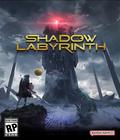FPS games have long been the domain of consoles. There have numerous attempts to create handheld shooters on the Nintendo DS and the Playstation Portable, but neither made one that really stuck. Games like Metroid Prime: Hunters felt basic and cramped, and it was difficult to justify playing them over a console shooter. The Playstation Vita is a powerful enough system that it can justify a console-level shooter, but most of the titles thus far have been half-baked. Killzone: Mercenary is Sony's attempt to rectify this problem. To the game's credit, it does that with flying colors, but unfortunately, it doesn't do much else.
Mercenary is a side story to the existing Killzone games. A rebel human colony known as Helghan have launched an attack on humanity. The Helghan people, known as the Helghast, are effectively space Nazis. They walk around in Hugo Boss uniforms with gas masks, complete with glowing red eyes, and they want to subjugate humanity because they believe they're the superior race. The force standing against them is the Interplanetary Strategic Alliance (ISA), who seeks to protect the other colonies from the Helghast. In Mercenary, you don't play as a ISA grunt but as a mercenary for hire named Arran Danner. The protagonist is a blank slate who is seeking a paycheck and is thrust into the middle of the war.
The title feels like an action movie, with a large batch of disposable but likeable stereotypes filling in for Danner's lack of voice work via radio. There are a few twists and turns but nothing that isn't predictable. It's basically an excuse to shoot space Nazis for a few hours. It's a fun romp, and the characters are likeable enough to not detract from the experience, but it isn't something that sticks with you beyond the short time it takes to finish the game.
At its core, Mercenary is a standard modern shooter. The enemies are humanoid foes equipped with basic guns, and combat involves stringing together headshots and melee kills to take them out as quickly as possible. The gun selection largely consists of machine guns and a few close-range weapons with different stats. Perhaps the most interesting aspect of the game is that most areas give you the stealth option. Using silenced weapons and melee kills, you can clear entire rooms without the enemies even noticing. Unfortunately, the stealth mechanics are a little wonky, so you're more likely to end up in a firefight. It's still nice to have the option.
The biggest choice you can make for your character's loadout is your Van-Guard, which is an equippable boost that you can use at any time. One summons a drone to scout the area, and another can blow the heck out of enemies. You can get a powerful frontal shield that blocks all attacks while it's active or a cloaking device that lets you sneak past heavily guarded areas. The Van-Guards so powerful that even buying one drastically reduces the game's difficulty. If you have the personal shield, you are nearly unstoppable, and the cloaking device makes areas a breeze. They're a neat variation on the otherwise standard combat and add some variety to the gameplay. Different Van-Guards can make spice up missions that feel too similar.
Making money is the name of the game in Mercenary. You're rewarded with in-game cash (Valor) for everything you do: shooting a guy, getting a headshot, hacking a door, and even picking up ammo. You can earn more money by sneaking through areas without alerting enemies or killing enemies in rapid succession, and you lose money each time you die. It's an interesting feedback mechanism in that it encourages you to take risks to earn a higher profit, which you can spend on more guns and Van-Guards. It sometimes feels silly when the plot tries to be dramatic — while popups constantly appear on-screen to let me know that I'm being paid double for my headshots. In general, I didn't mind the constant flow of rewards, but I would have preferred more subtlety for basic actions. I don't need five consecutive popup alerts for every melee attack.
Mercenary does an admirable job of working within the Vita's limitations, but they're still apparent. The lack of a second set of shoulder buttons makes it a little awkward to use your secondary weapons. You can switch to grenades like another weapon, or you can awkwardly tap the grenade button, which is bound to the d-pad. Both feel pretty uncomfortable compared to the ease of use of grenades in other modern shooters. Your Van-Guard abilities are similarly tied to awkward button presses. The lack of a clickable analog stick also means you have to use a face button to dash, which is awkward when it's sharing the same button as "take cover." It's pretty easy to accidentally stand up and start running when you're intending to hide behind a wall.
My biggest complaint involves the areas where they clearly tried to shoehorn Vita mechanics where they didn't belong. Performing a melee attack or interrogation slows down time and forces you to "slash" the screen in a certain direction. It's probably supposed to feel more immersive, but it hurts the combat pace.
Mercenary isn't a very long game. There are a handful of story missions, and you can finish each in about a half-hour. In total, the game takes about five hours to finish. There are a lot of optional features to extend the gameplay. Once you finish a mission, you can try the mission again but with optional objectives, such as finishing the mission while using a lot of explosives or not killing any of the innocent scientists. They're not difficult, but they add an interesting twist to the gameplay and force you to try the levels with different weapons and different Van-Guard loadouts.
The real meat of the game is the multiplayer, but honestly, the multiplayer would even feel scant on a console release. There are only a handful of standard multiplayer modes and a small selection of maps, and there's a maximum of eight players. The maps aren't tremendously interesting, and the shooting is by-the-numbers. One of the coolest features is that you're encouraged to fight different enemies to collect the "cards" that drop when they die, and the cards are generated based on that player's skill level and weapon preferences.
Like the rest of the game, the appeal is that this is a portable experience that's close to a console one. However, you're tied to your connection when it comes to Mercenary. It's harder to pick up and play a multiplayer match while on the go than compared to playing a bit of the single-player campaign, and that makes it harder to find a good time to play it over a well-rounded console shooter. The online community seemed very populated when I played, and I had no trouble finding people to play against. I had no trouble remaining connected as long as I was in Wi-Fi range, and the gameplay ran smoothly enough that I wasted a few hours on multiplayer without any complaints.
Mercenary does a fantastic job of showing off the Vita's power. It isn't quite up to par with a console game, but it's a darn sight closer than anything else we've seen from a handheld. The environments are relatively small but packed with detail, the animations are solid, and the set pieces are well-constructed. There are a few times the illusion breaks, especially if you get too close to certain enemies, but for the most part, it feels like a console experience in your hand. The voice acting is cheesy as heck, but in an appropriate '80s action movie way.
Killzone: Mercenary is a game that's defined by its hardware. It's a fun, accessible and modern shooter on a handheld system. Unfortunately, that is about all it has going for it. It's perfectly playable and does a good job of wasting a few hours, but in the end, it is about as cookie-cutter a shooter as you could play. There's very little in the way of creative, interesting or new features to make it stand out from the crowd. As far as Vita games go, Mercenary is easily one of the best shooters on the system, but as much of that is due to the lack of meaningful competition as its own merits. It's not a bad game, and it's a solid and well-constructed shooter, but it doesn't do anything exceptionally well. As proof that shooters on a handheld can be good, Mercenary succeeds, but that's about the sum total of its accomplishments.
Score: 7.0/10
More articles about Killzone: Mercenary













 Starting just after the ending of the original Killzone, and revisiting many of the events from the Killzone trilogy, the game puts players in the rugged combat boots of a mercenary named Arran Danner.
Starting just after the ending of the original Killzone, and revisiting many of the events from the Killzone trilogy, the game puts players in the rugged combat boots of a mercenary named Arran Danner.


































